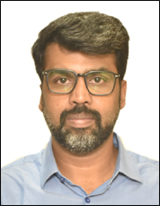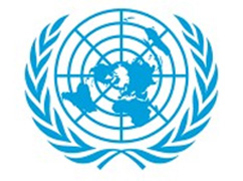
Living in the VUCA (Volatile, Uncertain, Complex and Ambiguous) world demands one to be instinctively data driven and consistently updated on emerging social and policy issues. Nevertheless, in the modern welfare states, we are increasingly dependent on the State and its administrative machineries for finding solutions to our collective problems. Emerging new global order and macro changes in the socio-structural, cultural and ideological organization of societies across the world, shifted the locus of solving social problems from the purview of micro-organizations/collectives to macro policy implementations.
Living in the VUCA (Volatile, Uncertain, Complex and Ambiguous) world demands one to be instinctively data driven and consistently updated on emerging social and policy issues. Nevertheless, in the modern welfare states, we are increasingly dependent on the State and its administrative machineries for finding solutions to our collective problems. Emerging new global order and macro changes in the socio-structural, cultural and ideological organization of societies across the world, shifted the locus of solving social problems from the purview of micro-organizations/collectives to macro policy implementations. Harold Laswell, considered the founder of policy sciences, in 1950s conceived the main goal of social sciences as problem-solving. He proposed social sciences to emphasize its policy orientation and be called policy sciences. Later, social policy studies emerged during 1980s and 1990s expanded the scope of social sciences to solving social problems through policy interventions.
During the present rapid social transformations, it is important to make policy- development a people centred process by mainstreaming peoples’ needs and voices. In an extremely diverse country like ours, inclusivity is instrumental in securing and promoting the welfare of all sections of society. But, today more than any time before, we feel the need for critical policy inquiry to bridge the gap between policy discourse and public discourse in which often priorities diverge from each other. Representing the voices and aspirations of people from the margins and acknowledging their diversity are pivotal in the policy making process. In this regard, Centre for Social and Policy Research (CSPR) focuses on social issues and policies related to the broader areas of Marginalization, Social Inclusion, Education, Economy, Law, Administration, Health and Labour Welfare.
Major Research Project on Development Induced Displacement
Major Research Project on “Mapping Social Work Perspective on Corporate Social Responsibility”
“A Study on effectiveness of the “Ujjawala Scheme” for the Prevention of Trafficking, Rescue, Rehabilitation and Re-integration of Victims of Trafficking in Karnataka State”.
2013 Second Annual Conference on Interdisciplinary Approaches to Social Responsibility – Evidences of Best Practices.
We believe in the ability of collective human efforts to create a better and equitable society through advanced research and advocacy. We strive to build a knowledge society, which is founded on scientific data and methods, to promote equality and inclusivity of policies.
We strive to achieve social equity and promote inclusivity by providing people centered research inputs to policy making. Towards this goal, we critically analyze policies and institutionalized practices across different layers of social and administrative systems to advocate the best for the benefit of our country and its people.

Director, Centre for Social and Policy Research director.cspr@christuniversity.in
Address
Bangalore Yeshwanthpur Campus
Nagasandra, Near Tumkur Road, Bangalore,
Karnataka-560073
Telephone
Mail Us At



